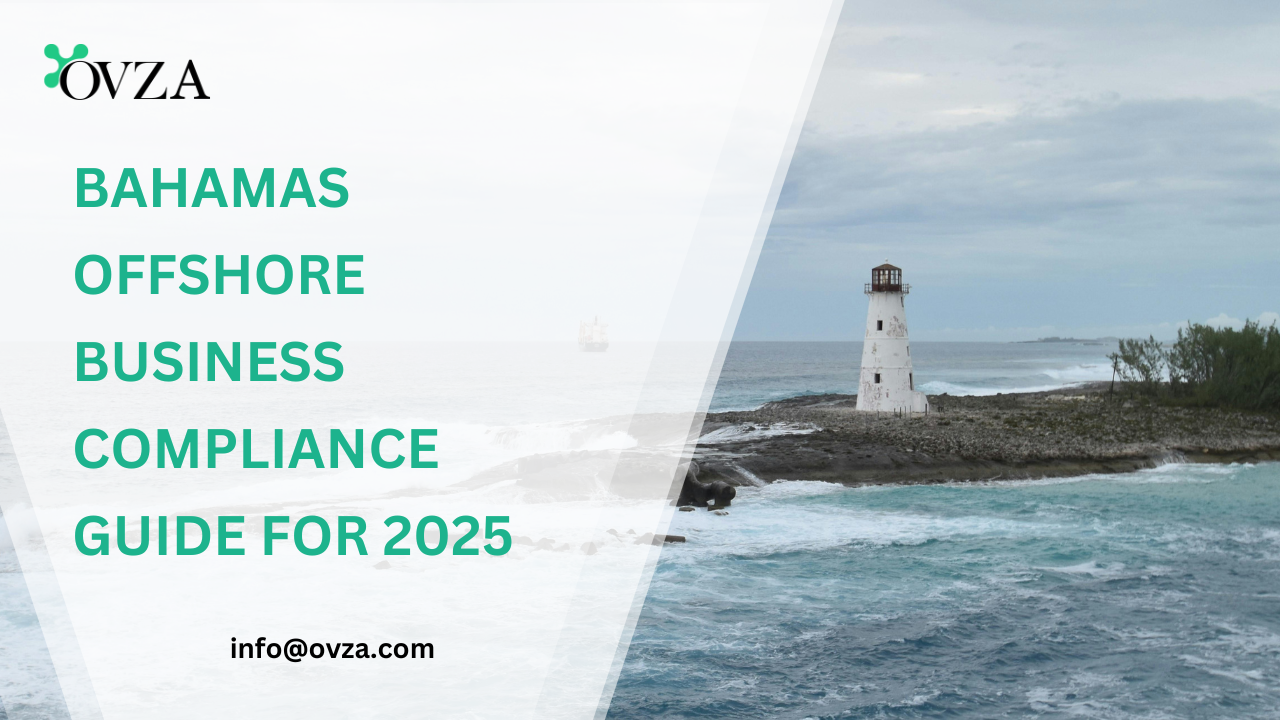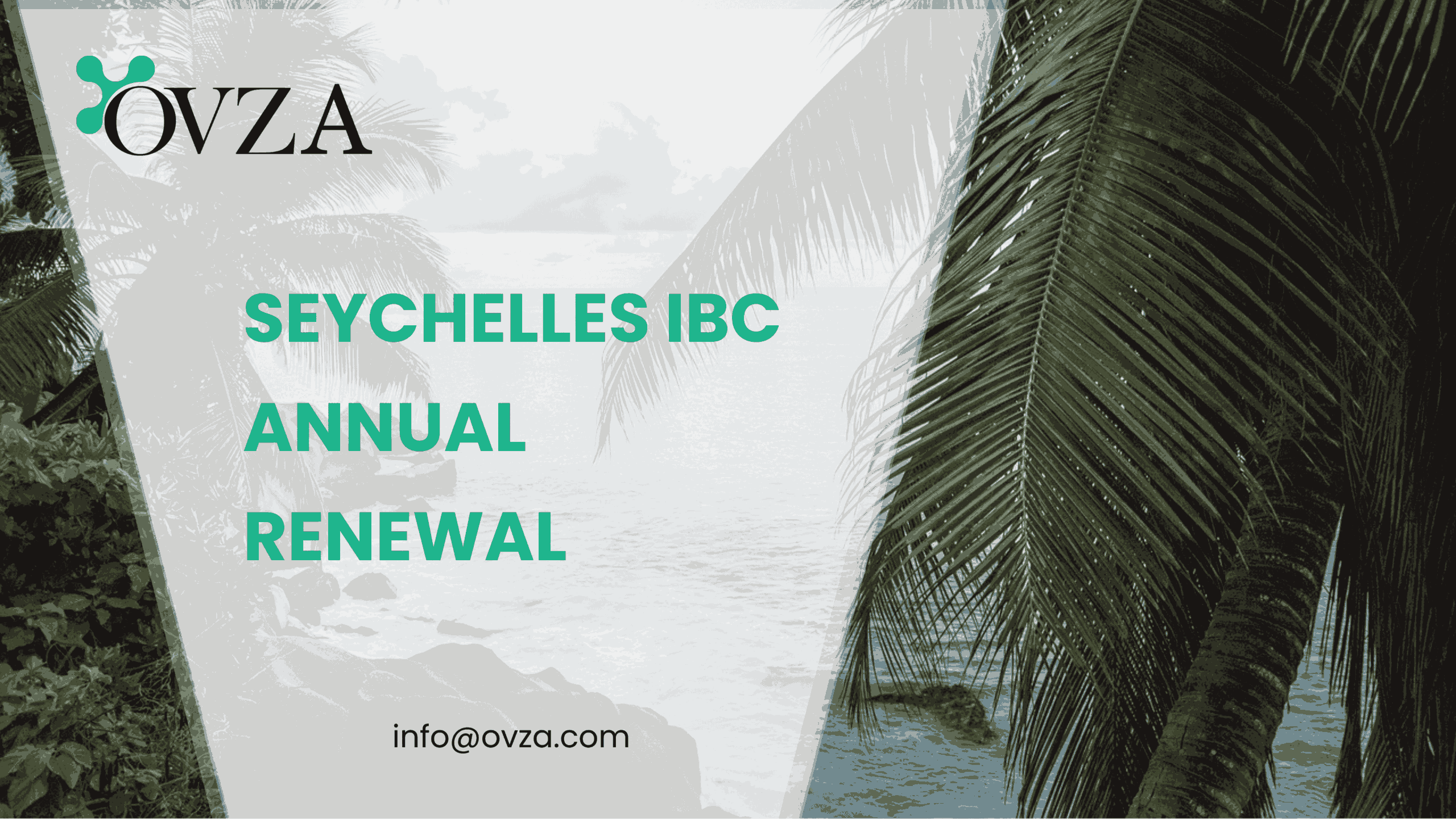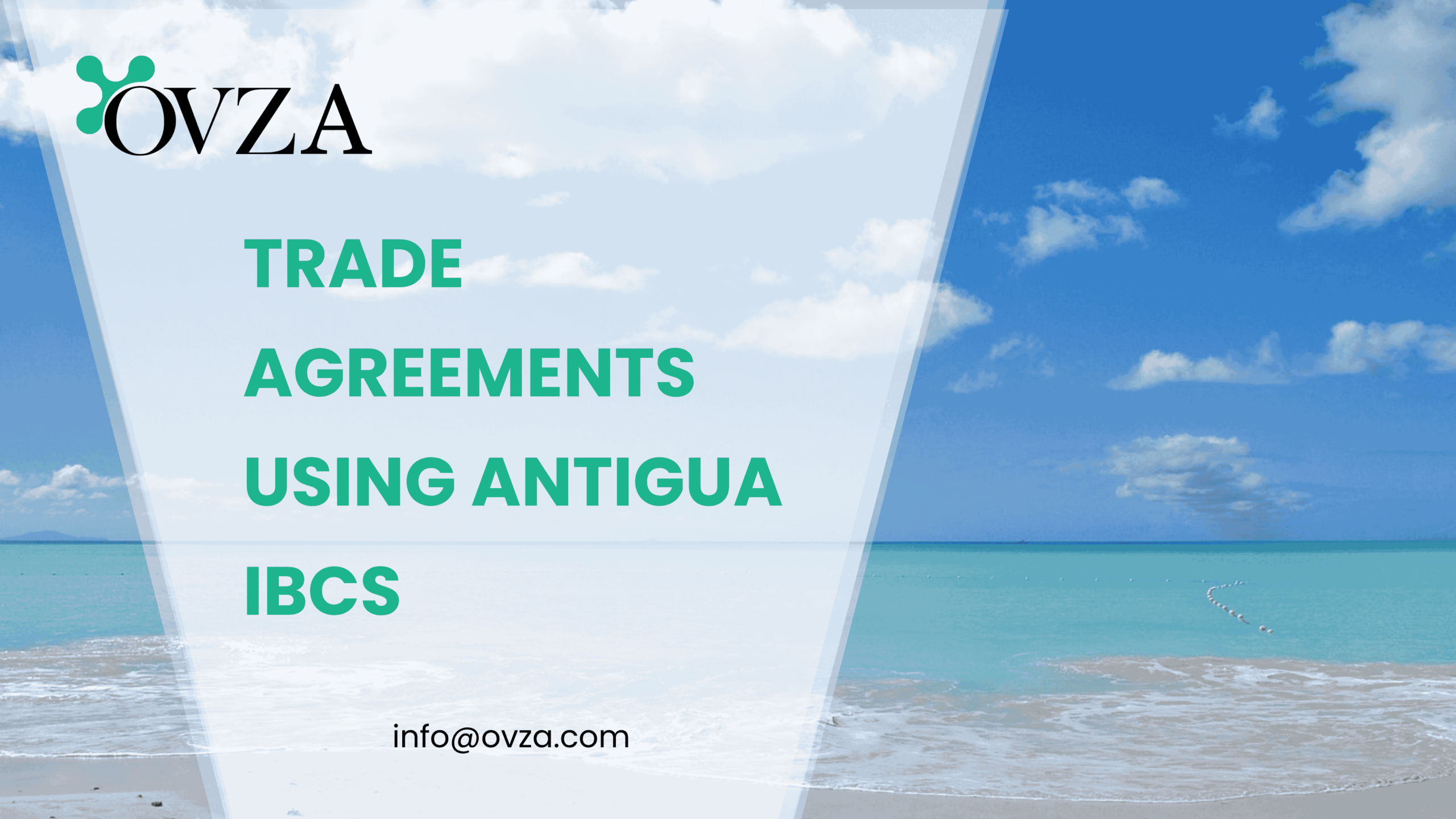Introduction
The Bahamas has long been a premier Bahamas offshore business destination, offering a tax-neutral environment, strong asset protection, and minimal reporting requirements. Business owners and investors looking to register a company in the Bahamas offshore sector can take advantage of a jurisdiction that is both business-friendly and compliant with international regulations.
However, as compliance standards evolve, particularly under scrutiny from organizations like the OECD, FATF, and the EU, it is crucial for International Business Companies (IBCs) in the Bahamas offshore sector to stay ahead of regulatory changes in 2025.
Operating an offshore company in the Bahamas requires adherence to key regulatory frameworks governing taxation, financial transparency, and corporate governance. Compliance with these laws ensures that businesses continue to benefit from the Bahamas offshore advantages without running the risk of penalties, fines, or loss of their company registration.
In this first section, we will explore the primary legal frameworks governing Bahamas offshore IBCs and why these regulations are essential for companies seeking long-term success in the jurisdiction.
The Legal Framework Governing Bahamas IBCs
The International Business Companies Act (IBC Act) is the foundation of offshore corporate law in the Bahamas. This legislation provides the guidelines for the formation, management, and dissolution of offshore companies while ensuring that IBCs remain compliant with international tax transparency requirements. Under the act, IBCs are exempt from local corporate taxes, capital gains taxes, and withholding taxes, making them an attractive option for entrepreneurs and investors. However, businesses must still comply with record-keeping requirements and submit to due diligence checks under the Bahamas’ financial compliance laws.
Another key regulation is the Commercial Entities (Substance Requirements) Act (CESRA), which was introduced to ensure that offshore businesses maintain real economic substance within the jurisdiction. CESRA applies to specific financial service companies, requiring them to establish a physical presence in the Bahamas, hire qualified employees, and conduct core income-generating activities locally. For companies that fall under CESRA’s scope, failure to meet substance requirements could result in penalties or removal from the corporate registry. The Bahamas has taken these steps to align with global financial transparency efforts while ensuring that businesses operating in the country are legitimate and sustainable.
Financial compliance is another major aspect of Bahamas offshore business regulations. The Financial Transactions Reporting Act sets out strict anti-money laundering (AML) and know your customer (KYC) obligations that all Bahamas IBCs must follow. Companies are required to verify the identities of their directors, shareholders, and beneficial owners, maintain detailed records of financial transactions, and submit to periodic compliance checks. These measures are in place to prevent offshore companies from being misused for illicit financial activities, ensuring that the Bahamas remains a reputable offshore jurisdiction.
Aside from financial regulations, corporate governance and annual reporting requirements play a key role in ensuring compliance. While Bahamas IBCs benefit from minimal reporting obligations, they must still renew their company registration annually, update shareholder and director records, and maintain accurate internal documentation. The Registrar General’s Department of the Bahamas oversees corporate filings and compliance to ensure that offshore businesses remain in good standing. Failure to comply with renewal and reporting requirements can lead to late fees, company suspension, or involuntary dissolution.
Why Compliance Is Essential for Bahamas Offshore Businesses
Remaining compliant with Bahamian offshore business laws is not just about avoiding penalties; it is essential for long-term business success. In 2025, global regulators are increasingly pressuring offshore jurisdictions to eliminate tax evasion loopholes, increase financial transparency, and enforce stricter economic substance requirements. The Bahamas has responded by strengthening its regulatory framework, ensuring that companies registered in the jurisdiction meet international best practices.
Non-compliance can result in serious consequences for businesses, including financial penalties, blacklisting by foreign regulators, and banking restrictions. Many international banks now require offshore companies to demonstrate compliance with economic substance laws and AML regulations before allowing them to open or maintain bank accounts. By proactively adhering to the Bahamas’ offshore business compliance laws, companies can avoid operational disruptions and safeguard their financial interests.
Another major advantage of compliance is the ability to retain the Bahamas’ tax benefits. While Bahamas IBCs are not taxed locally, jurisdictions such as the United States, European Union, and United Kingdom are actively monitoring offshore structures to ensure that businesses pay taxes where required. Companies that fail to meet economic substance standards may find themselves subject to taxation in their home country, undermining the benefits of incorporating in the Bahamas. By following proper compliance procedures, businesses can ensure that they retain their offshore tax advantages while avoiding legal risks.
Comparing Bahamas Offshore Compliance with Other Jurisdictions
For business owners looking to register a company in the Bahamas, understanding how its compliance landscape compares to other offshore jurisdictions is essential. While the Bahamas is well-known for its tax-neutral environment and strong financial regulations, competing jurisdictions such as the Cayman Islands, British Virgin Islands (BVI), and Bermuda offer similar benefits. However, each jurisdiction has unique compliance requirements, economic substance laws, and banking regulations that may influence a business owner’s decision.
In this section, we will explore the key differences between the Bahamas and these competing offshore centers, focusing on economic substance regulations, tax treatment, reporting requirements, and corporate governance.
Economic Substance Requirements: How Does the Bahamas Compare?
One of the most significant regulatory shifts in offshore business compliance has been the introduction of economic substance laws. These laws are designed to prevent companies from registering in offshore jurisdictions without conducting real business operations there. The Bahamas introduced the Commercial Entities (Substance Requirements) Act (CESRA) to ensure that companies conducting banking, insurance, fund management, and other regulated activities have a genuine presence in the jurisdiction. Under CESRA, businesses must maintain a physical office, hire employees, and conduct income-generating activities locally to remain compliant.
The Cayman Islands and BVI have similar economic substance regulations, particularly for companies involved in intellectual property management and high-risk financial services. However, their enforcement has been less strict compared to the Bahamas, with some companies opting for outsourced compliance solutions rather than maintaining a full operational presence. Bermuda, on the other hand, has some of the most rigorous substance requirements among offshore jurisdictions, making it less attractive for companies that do not wish to establish a significant business presence.
For business owners who do not fall under CESRA’s requirements, the Bahamas remains an excellent choice. Many standard International Business Companies (IBCs) can still operate without local employees or a physical presence, as long as they comply with annual filing and record-keeping obligations.
Tax Treatment: Bahamas vs. Other Offshore Jurisdictions
One of the main reasons entrepreneurs choose offshore jurisdictions is for tax optimization. The Bahamas does not impose corporate tax, capital gains tax, inheritance tax, or withholding tax, making it an attractive destination for international businesses and wealth management structures.
The Cayman Islands and BVI offer similar tax advantages, with zero direct taxation on businesses. However, some corporate banking clients in these jurisdictions have faced increased scrutiny from financial institutions, particularly when dealing with EU and US regulatory bodies.
Bermuda, while still considered a low-tax jurisdiction, requires certain businesses to pay Payroll Tax and Economic Substance Tax, which increases operating costs for companies maintaining a presence there. This makes Bermuda less favorable for tax efficiency when compared to the Bahamas, BVI, and Cayman Islands.
While all of these jurisdictions provide tax-neutral benefits, the Bahamas remains one of the most straightforward and stable options for companies that do not want additional local taxation or complex reporting obligations.
Reporting & Compliance Burden
For business owners who prefer minimal reporting obligations, the Bahamas offers a light regulatory framework for standard IBCs. While companies must maintain proper records, submit annual renewals, and adhere to KYC/AML requirements, they are not required to file annual financial statements unless specifically mandated by the authorities.
The British Virgin Islands operates under a similar system, requiring companies to keep basic internal records, but not mandating extensive audits or financial disclosures.
The Cayman Islands, however, has stricter reporting requirements, particularly for companies in the financial services sector. Cayman-based businesses are expected to submit annual economic substance declarations and, in some cases, file financial statements depending on their corporate structure and activities.
Bermuda enforces the most stringent reporting rules among these offshore jurisdictions. Businesses in Bermuda must maintain full accounting records and file annual economic substance reports, even if they do not conduct local operations. This additional compliance burden makes Bermuda less attractive for companies looking for a hassle-free offshore structure.
The Bahamas strikes a balance between strong compliance and business-friendly policies, making it a preferred choice for companies that require a secure yet flexible offshore jurisdiction.
Corporate Banking & International Reputation
One of the major challenges for offshore companies in any jurisdiction is opening and maintaining international bank accounts. Many banks have tightened regulations on offshore companies due to increased scrutiny from global financial regulators.
The Bahamas benefits from a strong international reputation, particularly due to its strict AML/KYC laws, which help businesses maintain credibility with banking institutions. Companies registered in the Bahamas generally have an easier time opening offshore bank accounts compared to companies in BVI and the Cayman Islands, where some banks impose additional due diligence requirements due to past regulatory concerns.
Bermuda, while highly reputable, often requires higher initial capital requirements for businesses opening corporate bank accounts, making it less accessible for startups or small offshore companies.
For companies that prioritize smooth banking operations, the Bahamas provides a trusted jurisdiction where businesses can access global financial networks while maintaining compliance with international banking regulations.
OVZA’s Expert Recommendations for Ensuring Bahamas Offshore Compliance in 2025
For business owners looking to register a company in the Bahamas, staying compliant with offshore business regulations is essential to maximize tax benefits, maintain good legal standing, and avoid penalties. While the Bahamas offers a business-friendly environment, non-compliance with corporate governance, economic substance, and financial reporting requirements can lead to fines, restrictions, or even the dissolution of the company.
At OVZA, we specialize in helping businesses navigate offshore compliance and ensuring that companies remain in good standing with Bahamian and international regulatory authorities. Below are our expert recommendations to help business owners maintain full compliance while leveraging the advantages of the Bahamas offshore jurisdiction.
1. Choose the Right Business Structure for Compliance & Tax Optimization
Selecting the right International Business Company (IBC) structure is the first step in ensuring compliance. Bahamas IBCs are widely used for asset protection, international trading, and tax efficiency, but some business activities may fall under economic substance requirements.
Companies involved in financial services, insurance, fund management, or banking need to comply with CESRA, which requires them to establish a physical office, hire employees, and conduct real business operations in the Bahamas. If your business does not fall under these categories, you may be exempt from CESRA requirements, but you must still meet record-keeping and reporting obligations under the Registrar General’s Department of the Bahamas.
OVZA recommends working with an offshore compliance expert to assess your business activities and determine the best corporate structure that meets both local and international regulatory standards.
2. Maintain Proper Corporate Records & Annual Renewals
Although the Bahamas does not impose corporate tax or mandatory financial reporting for IBCs, all offshore companies must keep accurate records and renew their registration annually. Failing to do so can lead to hefty fines or deregistration by the Bahamian authorities.
To stay compliant, OVZA recommends:
- Keeping accurate records of business transactions, director and shareholder information, and company decisions.
- Ensuring annual renewal fees are paid on time to avoid penalties or loss of company status.
- Submitting any required compliance documentation to the Bahamas Financial Services Board if your business falls under CESRA regulations.
Many non-compliant offshore companies face issues because they fail to update corporate records. This can cause problems when opening bank accounts, renewing licenses, or proving legitimacy to international regulators.
At OVZA, we offer corporate compliance services to ensure that businesses never miss deadlines and always remain in good standing with the Bahamian government.
3. Stay Compliant with Anti-Money Laundering (AML) & Know Your Customer (KYC) Regulations
One of the biggest risks for offshore companies is failing to comply with AML and KYC requirements. Banks, financial institutions, and Bahamian regulatory bodies require businesses to verify their beneficial owners, maintain proper records, and prevent financial crimes.
To avoid issues, companies should:
- Ensure all directors and shareholders undergo KYC verification.
- Maintain a transparent ownership structure to meet global financial transparency standards.
- Work with a licensed corporate service provider to ensure full AML compliance.
Bahamas offshore companies that fail to follow AML regulations can face international banking restrictions, making it harder to access financial services. OVZA provides AML/KYC compliance solutions to help businesses meet regulatory requirements while maintaining financial privacy.
4. Ensure Compliance with Banking & International Financial Standards
Opening a corporate bank account is one of the most challenging aspects of running an offshore company. Many international banks require proof of economic substance, proper documentation, and financial records before granting accounts to Bahamas IBCs.
To ensure smooth banking operations, OVZA recommends:
- Choosing the right jurisdiction for corporate banking. Some banks have stricter requirements than others.
- Working with international banks that have experience handling Bahamas offshore entities.
- Maintaining updated compliance records, including proof of business activities, director information, and financial transactions.
OVZA assists businesses in opening and maintaining offshore bank accounts, ensuring that companies meet all necessary banking compliance requirements while retaining access to global financial networks.
5. Keep Up with Regulatory Changes & International Compliance Trends
The offshore business landscape is constantly evolving, with new tax regulations, economic substance laws, and compliance requirements emerging every year. Business owners must stay ahead of these changes to avoid unexpected penalties or legal challenges.
The Bahamas has taken steps to strengthen its financial transparency laws to maintain a strong reputation in the offshore world. However, other jurisdictions, including the United States, European Union, and OECD member states, are constantly introducing new regulations targeting offshore companies.
OVZA offers real-time compliance monitoring, keeping businesses informed about regulatory updates and helping them adapt to new international financial laws. We provide personalized compliance strategies to ensure that your Bahamas IBC remains fully compliant and operational in 2025 and beyond.
Final Thoughts on Bahamas Offshore Compliance in 2025
The Bahamas continues to be one of the best offshore jurisdictions for business owners seeking tax efficiency, strong legal protections, and financial privacy. However, maintaining compliance with local and international regulations is essential to ensure long-term success.
By choosing the right corporate structure, maintaining proper records, adhering to AML/KYC rules, ensuring banking compliance, and staying informed about regulatory updates, offshore companies can continue benefiting from the Bahamas’ tax advantages while avoiding legal risks.
For business owners looking to register a company in the Bahamas in 2025, OVZA provides expert offshore business solutions that ensure full compliance with Bahamian regulations. Whether you need help with economic substance requirements, annual filings, banking, or AML compliance, our team is here to assist you at every step.
To learn more about offshore company registration and compliance, visit The Bahamas Financial Services Board or contact OVZA for customized offshore business solutions.











